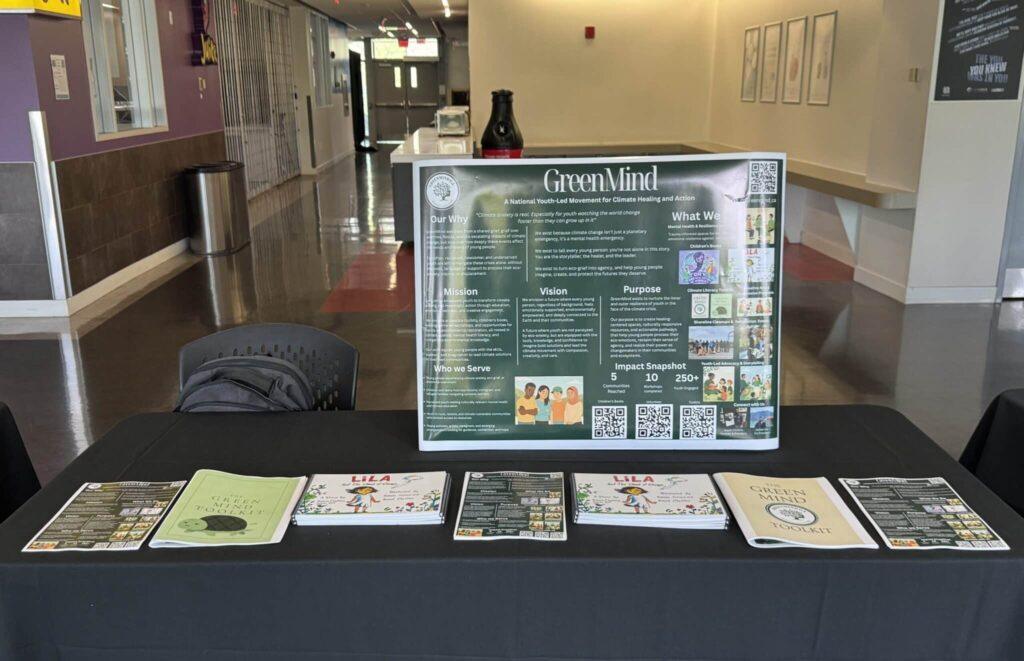How We Work
At Green Mind, the way we carry out our work is guided by care, humility, and a deep respect for the communities we serve. We do not see our work as a service or a transaction. We see it as a relationship. We are here to walk alongside young people and their communities, to listen carefully, to adapt with honesty, and to offer resources that are created with the people who will use them. Everything we do is shaped by connection, collaboration, and an unwavering commitment to emotional and cultural safety.
Our work begins with listening. Before we develop a resource, design a workshop, or enter a new partnership, we spend time in conversation with the people who will be impacted. We ask what they are feeling, what they need, what has worked in the past, and what is missing. We listen to the voices of youth, Elders, caregivers, educators, and community leaders. We take time to understand the local context, the cultural values, and the emotional climate of each space. We do not assume we know best. We treat every partnership as an opportunity to learn.
When we create programs, we do so in ways that centre emotional safety. Many of the youth we work with are navigating overlapping forms of stress, trauma, and uncertainty. Some are living through wildfires, floods, or droughts. Others are experiencing displacement, loss of culture or language, housing instability, or systemic racism. Many have never been given a space where their emotions are acknowledged or supported. That is why all of our workshops and materials are designed with trauma-informed practices. We begin with the belief that every participant deserves to feel safe, respected, and in control of their experience. We introduce clear community agreements, use grounding techniques, and always offer options for participation that honour different comfort levels, communication styles, and emotional needs.

We also prioritize cultural humility in everything we do. This means we approach every community with respect, curiosity, and a willingness to be guided. In our work with Indigenous communities, we do not use teachings without permission. We never extract knowledge or replicate cultural practices without guidance and consent. We build long-term relationships with Elders, youth leaders, and language keepers who help shape our content, our values, and our understanding of what healing looks like. Where welcomed, we include ceremony, spiritual care, and land-based teachings in our workshops. We also ensure that Indigenous partners are meaningfully compensated, credited, and celebrated for their contributions.
Our work is also grounded in place. We recognize that every community is different. A youth living in a coastal town may be facing different challenges than a youth in a northern community or an inner-city neighbourhood. That is why we adapt each workshop and resource to reflect the local realities of the people we are supporting. We offer our programs in both English and French. We work in schools, camps, cultural centres, and virtual spaces. We make our content available in downloadable and printable formats for those without reliable internet. We ensure that timing, location, and delivery methods are flexible. We do not believe in one-size-fits-all programming. We believe in designing with care for each community’s unique needs.

We also invest deeply in youth mentorship and leadership. Green Mind is not led by adults speaking on behalf of young people. It is led by youth who are creating space for one another to grow. Our team of youth facilitators is trained in emotional literacy, trauma-informed practice, and community dialogue. They lead workshops with empathy, vulnerability, and authenticity. They serve as role models, not because they are perfect, but because they are honest about their own journeys. We also support youth who want to bring this work into their own schools, towns, or Nations.

We treat feedback as a vital part of our process. After each session, we ask what resonated, what could be improved, and what youth would like to see next. We revise our toolkits regularly, translate materials where needed, and remain open to growth. Because we are youth-led, we can respond quickly to emerging needs and adapt our work to reflect what is really happening in the lives of young people today. We value honesty and remain in conversation with those we serve, always ready to listen, learn, and shift where needed.
Green Mind is not a campaign or a project with an end date. It is a practice. It is the daily work of making space for emotion in climate education, and space for care in community work. It is about honouring the truth that young people do not need to be fixed or told what to do. They need to be trusted. They need to be heard. They need to be supported in turning their care for the planet into something healing, powerful, and connected.
